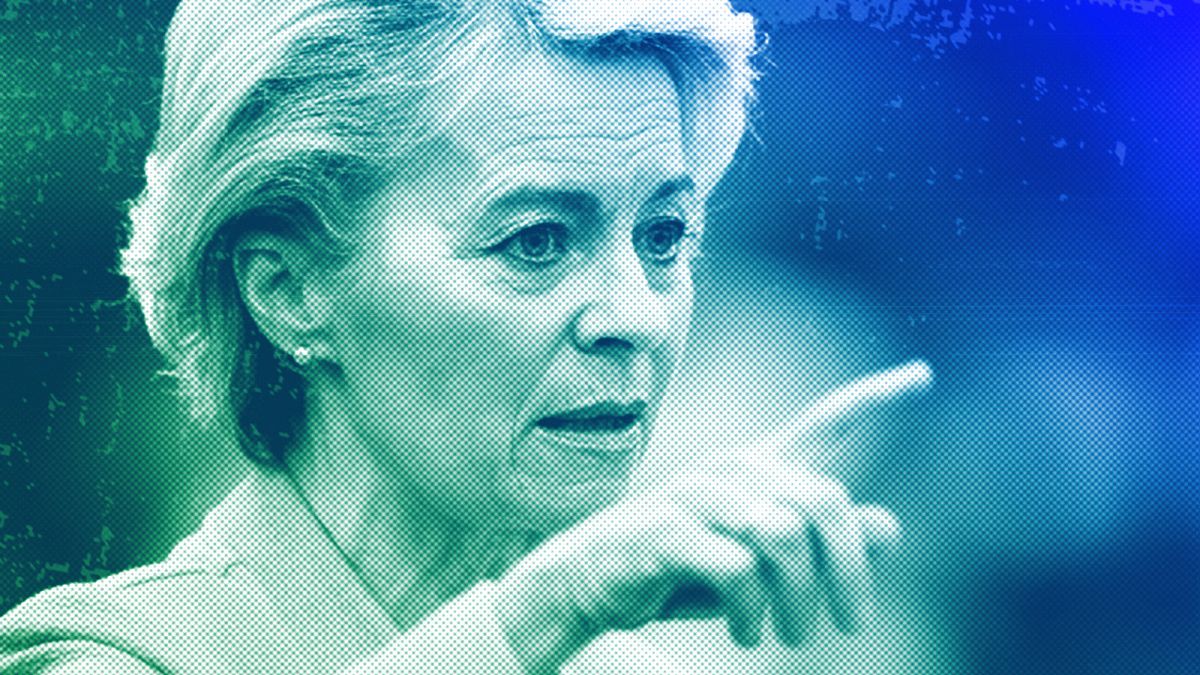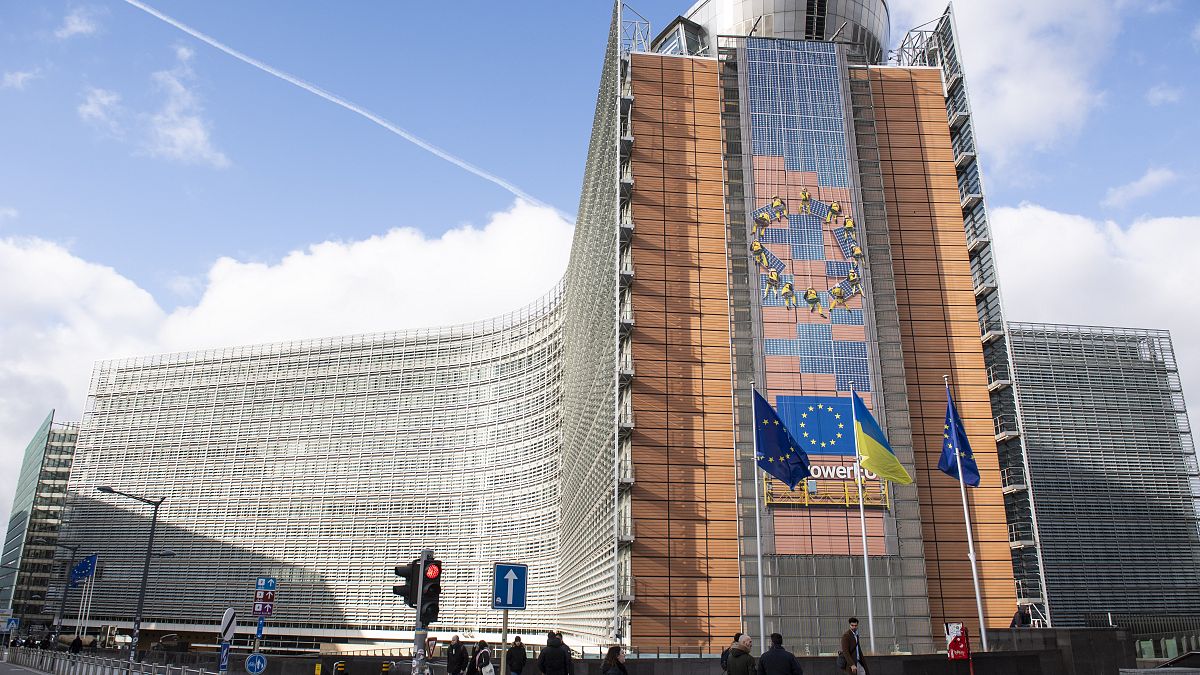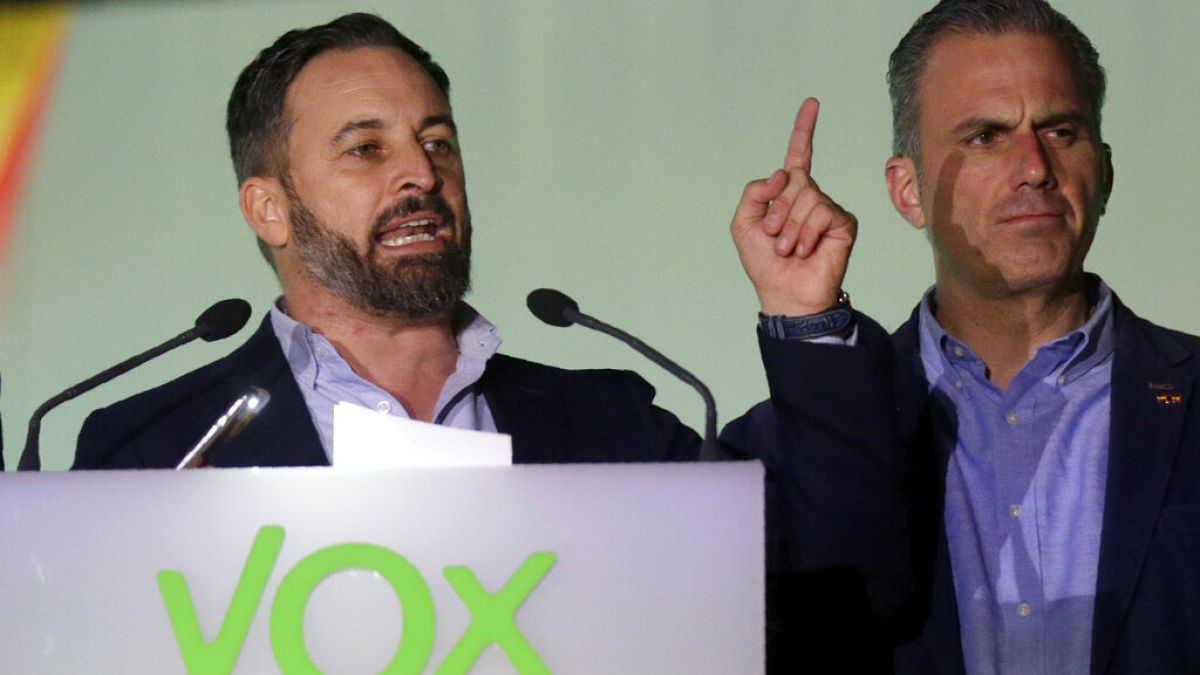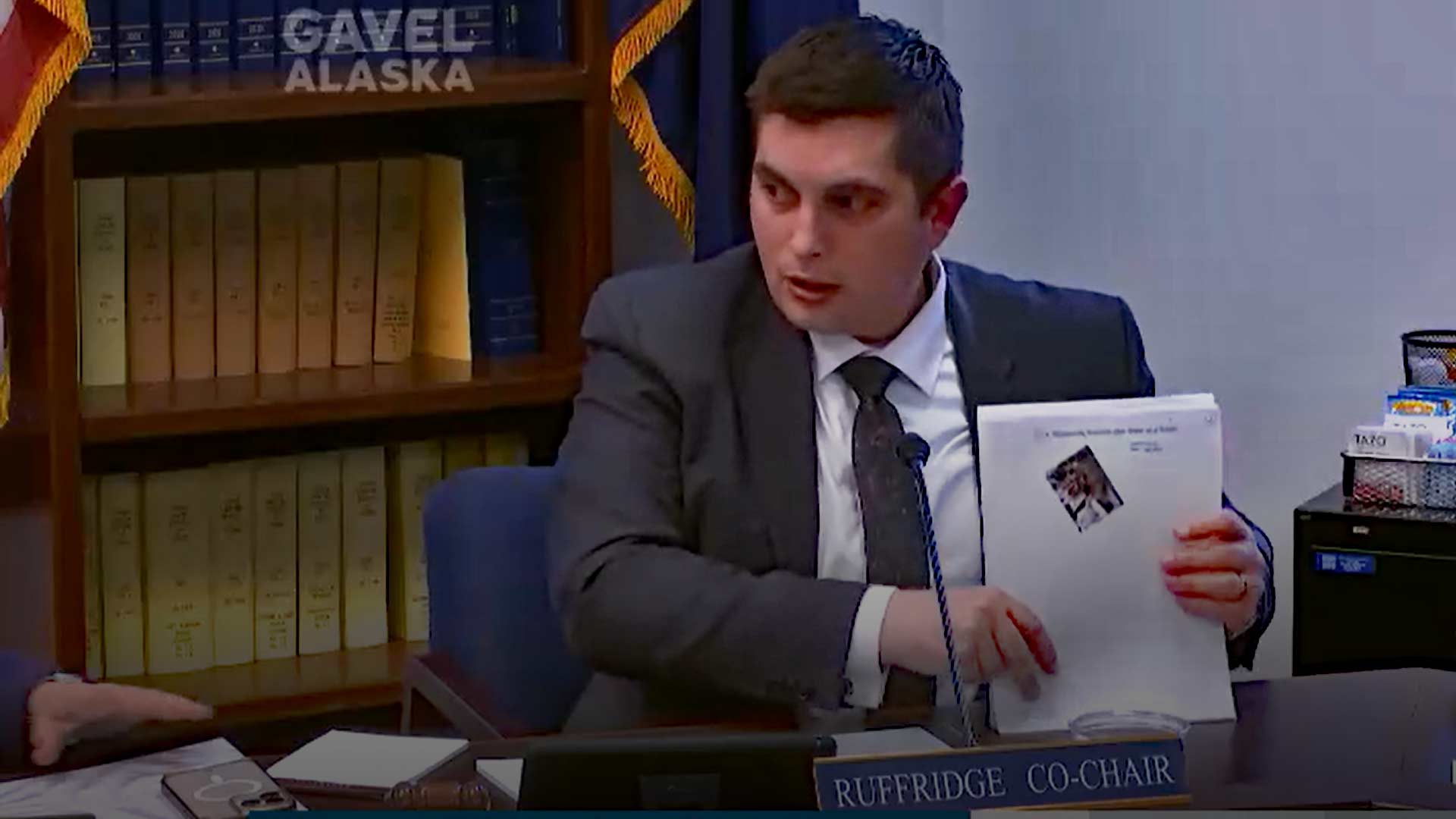World
Brussels has ‘zero’ concerns on amnesty law, says Spanish minister

The European Commission has no concerns about the impact of Spain’s controversial amnesty bill on the rule of law, Spanish justice minister Félix Bolaños said on Thursday.
Speaking to reporters in Brussels following a meeting with EU justice commissioner Didier Reynders and transparency commissioner Věra Jourová, Bolaños said: “On the amnesty law, I have to tell you that the European Commission has zero concerns about the health and strength of the rule of law and the separation of powers in Spain – zero concerns, zero, none.”
“They (the Commission) are familiar with the law that has been presented, they know that it is a bill that absolutely conforms with the constitution, with Spanish law, also with EU law. And not only with EU law but also with European values of dialogue, of mutual understanding and of building coexistence from conflict,” Bolaños added.
Earlier this month, Catalan separatist party Junts per Catalunya (JxCat) – led by the self-exiled Carles Puigdemont – offered seven of its votes in the Spanish parliament to back a government led by socialist Pedro Sánchez in exchange for a controversial amnesty for Catalan politicians and activists who participated in a failed attempt at secession from Spain in 2017.
The move has infuriated Spain’s opposition parties, who accuse Sánchez and the Spanish socialist party (PSOE) of flouting the rule of law for political gains. The political right had called on the EU executive to intervene by probing potential rule of law infringements.
The bloc can sanction member states for rule of law breaches under Article 7 of the EU treaties and is currently withholding funds from both Hungary and Poland for democratic backsliding.
Following Thursday’s meeting with Bolaños, justice commissioner Didier Reynders said they had held a “good meeting” and that “dialogue will continue with the Spanish authorities.”
Reynders said last week that his legal team is scrutinising the bill “carefully, independently, and objectively to determine compliance with EU law,” but the Commission has so far refrained from disclosing its assessment of the proposed law, and no concerns regarding the erosion of the rule of law have been raised.
Bolaños – branded ‘super-minister’ after being given responsibility for the Presidency, justice and relations with the parliament in Pedro Sánchez’s newly-formed government – said that the Commission considered the amnesty bill to be an “internal matter for Spain.”
He also claimed the amnesty would help overcome a problem that had plagued Catalonia, Spain and Europe over the past decade.
“Our clear objective is to overcome a conflict that we had in Catalonia, and that of course affected not only Spain, but also the rest of Europe,” he said.
Last Wednesday, right-wing lawmakers in the European Parliament took aim at the amnesty bill in a heated debate, accusing Sánchez of flouting the rule of law for his own political gains.
But few lawmakers from other member states turned up to the debate, in a sign of what Bolaños claimed to be the bloc’s acceptance of the law.
“Therefore, given that this is the situation in Brussels, I would be grateful if the Partido Popular would not aim to harm our country’s reputation to fulfill their political goals,” he said, referring to Spain’s main opposition, centre-right party.
He also claimed that the largest part of the meeting with Commissioner Reynders was dedicated to the sore issue of the renewal of Spain’s top legal body, the General Council of the Judiciary (GCJ).
A political standoff between the government and the opposition over judicial appointments means the appointment of new members to the GCJ is blocked. Bolaños accused the PP of blocking the renewal
“Next Monday it will be five years since the PP has been blocking the renewal,” Bolaños said.
“The European Commission knows exactly who is responsible for us not being able to renew the General Council of the Judiciary,” he said.

World
Senate races are roiled by campus protests over the war in Gaza as campaign rhetoric sharpens
HARRISBURG, Pa. (AP) — The student protest movement disrupting university campuses, classes and graduation ceremonies over the war in Gaza is also roiling Senate contests across the nation as Democrats tread cautiously over an internal divide and Republicans play up their rivals’ disagreements.
The political impact of the protests on the White House campaign has drawn considerable attention, with opposition to President Joe Biden’s handling of the Israel-Hamas war reverberating from Columbia to UCLA. The fast-evolving landscape of the demonstrations is shaping pivotal Senate races, too.
Tent encampments have popped up at universities in many states where Democrats this election year are defending seats essential to maintaining the party’s razor-thin Senate majority. At some schools, police crackdowns and arrests have followed.
The protests have sharpened the campaign rhetoric in Pennsylvania, Nevada, Ohio and Michigan, among other places. Republican candidates in California and Florida have stepped up their criticism of the Democratic president for the U.S. response to the war or for chaotic scenes on American campuses.
Some Republicans have shown up at encampments, including one at George Washington University, not far from the White House. Sen. Rick Scott, R-Fla., who is facing reelection, said on social media that he went there to show solidarity with Jewish students. “We need to do all we can to protect them,” he said.
Republican candidate David McCormick, during a visit to the University of Pennsylvania, said protesters at the Ivy League school did not know the “difference between right and wrong, good and evil,” and were creating a hostile atmosphere for Jewish students.
McCormick has decried what he frames as a lack of leadership and moral clarity on the part of his Democratic opponent, Sen. Bob Casey, as well as by Biden and administrators at the school buffeted by accusations of harboring antisemitism.
“What’s happening on campuses is clearly a test of leadership and moral courage, both for the college presidents and for our leaders and for Sen. Casey and President Biden,” McCormick said in an interview.
Israel and its supporters say the protests are antisemitic, a charge that Israel’s critics say is sometimes used to silence legitimate opposition. Although some protesters have been caught on camera making antisemitic remarks or violent threats, protest organizers, some of whom are Jewish, say it is a peaceful movement aimed at trying to save the lives of Palestinians civilians.
Many Democrats, from Biden on down, avoided saying much about the situation until recently as universities began to crack down and comparisons were made to anti-war protests of the 1960s.
Even then, Democrats balanced their criticism of antisemitism and rule-breakers with the need to protect the right to free expression and peaceful protest. Some have tried to avoid taking sides in protests that have pitted pro-Israeli versus pro-Palestinian Democrats and divided important parts of the party’s base, including Jewish, Arab American and younger voters.
Republicans, meanwhile, have railed at what they characterized as equivocating or silence by Democrats. Republicans professed solidarity with Jews against antisemitism while condemning the protests as lawless.
Mike Rogers, a Republican seeking an open Senate seat in Michigan, said student protesters at Columbia were “Hamas sympathizers.” In California, GOP Senate candidate Steve Garvey called them “terrorists” practicing “terrorism disguised as free speech.”
In five states, the National Republican Senatorial Committee, the Senate Republicans’ campaign arm, is using the protests in digital ads about student loan forgiveness, saying Democrats want to pay off the loans of students “radicalized by the far left” who are “threatening Jews,” “attacking police” and “acting like terrorists.”
McCormick and others say universities that, in their view, tolerate antisemitism should lose federal subsidies and that visas should be revoked for any foreign student inciting violence or expressing pro-Hamas sentiments at the encampments.
Casey, long a staunch supporter of Israel, has criticized acts of antisemitism on campuses and pointed to legislation he sponsored as a way to make sure the Education Department takes action.
“Students of course have the right to peacefully protest, but when it crosses the line either into violence or discrimination, then we have an obligation to step in and stop that conduct,” Casey said Thursday as he urged colleagues to pass his bill.
Democratic Sen. Jacky Rosen of Nevada, who is Jewish and facing reelection, said she was “horrified” by displays of antisemitism on campuses and, like Casey, called for the department to hold schools accountable.
In California, U.S. Rep Adam Schiff, the Democratic nominee for an open Senate seat, took aim at the Columbia demonstration and said “antisemitic and hateful rhetoric is being loudly and proudly displayed.” Accused by Garvey of being “incredibly silent” on the protests, Schiff, who is Jewish, voted for a House bill similar to Casey’s and released a statement that condemned violence and the “explicit, repeated targeting and intimidation of Jewish students.”
Republicans elsewhere contended statements by Democrats were equivocating and inadequate.
Republicans called out Sen. Sherrod Brown, D-Ohio, after he told an Axios reporter last week that he was “not going to talk about the politics of that. People always have the right to speak out and should.”
His Republican opponent, Bernie Moreno, charged that Brown had “wholeheartedly endorsed these vile and violent antisemitic demonstrations.”
Later, at a news conference, Brown gave more expansive comments. “Students want to make their voices heard, they need to do it in a way that’s nonviolent, they need to do it in a way that doesn’t spew hatred, and laws need to be enforced,” he said.
In Michigan, which has a relatively significant Muslim population, Biden’s handling of the war is expected to factor heavily into the presidential and Senate races.
Rogers, a favorite for the GOP nomination, thanked New York City police for confronting protesters and “standing up to protect Jewish students at Columbia from the visceral hatred we’ve witnessed from Hamas sympathizers on their campus.”
Republicans argued that U.S. Rep. Elissa Slotkin, the front-runner for the Democratic nominationfor Senate, had not spoken out strongly against protests at Columbia, her alma mater, and that she took five days after they began to say anything at all.
Slotkin, who is Jewish, said in an April 22 statement — the most recent wave of demonstrations began at Columbia on April 17 — that “the use of intimidation, antisemitic signs or slogans, or harassment, is unacceptable.”
It was, she suggested, a complicated topic.
“I would rather be thoughtful and take more time than have a knee-jerk answer for any issue,” Slotkin said in an interview. “But especially this one.”
__
Associated Press reporters Adam Beam in Sacramento, California; Joey Cappalletti in Lansing, Michigan; Mike Catalini in Trenton, New Jersey; Tassanee Vejpongsa in Philadelphia; and Stephany Matat in West Palm Beach, Florida, contributed to this report.
World
13 killed as heavy rains unleash landslide in Haiti
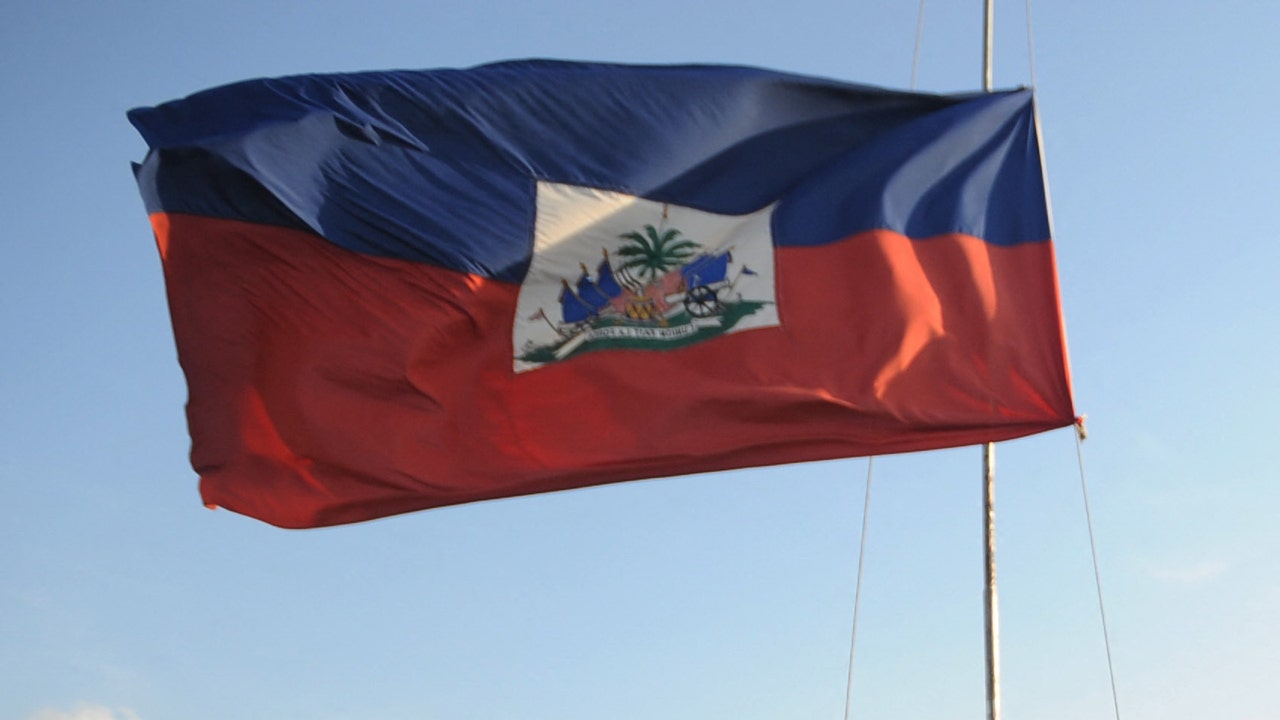
At least 13 people died in northern Haiti following two days of heavy rains, officials said.
The majority of the deaths were caused by a landslide in the southeastern region of the coastal city of Cap-Haitien, according to a Thursday statement by Haiti’s Civil Protection Agency.
GANGS IN HAITI LAUNCH FRESH ATTACKS, DAYS AFTER A NEW PRIME MINISTER IS ANNOUNCED
More than 2,200 homes also were flooded, and there were significant losses in livestock swept away by the Haut-Cap river, authorities said.
Officials say at least 13 people died in northern Haiti following two days of heavy rains. (Photo by THONY BELIZAIRE/AFP via Getty Images)
Crews were clearing roads across northern Haiti, with additional rain expected in upcoming days.
Heavy rains also were reported in neighboring Puerto Rico, forcing at least a dozen flights scheduled to land in the capital of San Juan to reroute to the Dominican Republic and elsewhere, officials said Friday.
Widespread flooding also was reported in the U.S. territory.
World
‘It’s going to be worse’: Brazil braces for more pain amid record flooding

The death toll has climbed to 56 in Brazil’s southern Rio Grande do Sul state, with tens of thousands displaced.
Overpowering floods and mudslides caused by torrential rains are continuing to sweep southern Brazil, killing at least 56 people and forcing tens of thousands out of their homes, the government said.
As well as raising the death toll on Saturday, the country’s civil defence agency said rising water levels in the state of Rio Grande do Sul were straining dams and threatening the metropolis of Porto Alegre.
Triggered by storms that began on Monday, the flooding is only expected to get worse, local authorities said, as rescuers scoured the ruins of washed-out homes, bridges, and roads for missing people.
“Forget everything you’ve seen, it’s going to be much worse in the metropolitan region,” Governor Eduardo Leite said on Friday as the state’s streets were submerged.
‘Nothing could be saved’
The flooding, Brazil’s worst in 80 years, has so far affected at least 265 municipalities in Rio Grande do Sul, according to the southernmost state’s civil defence department.
It has injured at least 74 people, displaced more than 24,000, and left 350,000 with some form of property damage.
“Nothing could be saved,” said Claudio Almiro, who lost his home and possessions to the flooding.
“Many people have even lost their lives. I raise my hand to heaven and thank God that I’m alive.”
Residents in several cities and towns have been left completely cut off from the world, with no electricity or telephone access, while others have been forced to abandon their livestock.
“You don’t know if the water will continue to rise or what will happen to the animals, they may soon drown,” said Raul Metzel, from Capela de Santana, north of the state’s capital.
Five days in, as the rainfall shows no signs of letting up, four of the state’s dams are at risk of collapsing, creating the risk of a new “emergency situation”, according to civil defence officials.
Brazil’s federal government has sent aircraft, boats and more than 600 soldiers to help clear roads, distribute food, water and mattresses, and set up shelters, while local volunteers have also helped with search efforts.

‘Disastrous cocktail’
Climatologist Francisco Eliseu Aquino said the devastating storms were the result of a “disastrous cocktail” of global warming and the El Nino weather phenomenon.
South America’s largest country has recently experienced a string of extreme weather events, including a cyclone in September that killed at least 31 people.
Aquino said the region’s particular geography meant it was often confronted by the effects of tropical and polar air masses colliding – but these events have “intensified due to climate change”.
And when they coincide with El Nino, a periodic warming of the waters in the tropical Pacific, the atmosphere becomes more unstable, he said.
-

 News1 week ago
News1 week agoLarry Webb’s deathbed confession solves 2000 cold case murder of Susan and Natasha Carter, 10, whose remains were found hours after he died
-

 News1 week ago
News1 week agoFirst cargo ship passes through new channel since Baltimore bridge collapse
-

 World1 week ago
World1 week agoHaiti Prime Minister Ariel Henry resigns, transitional council takes power
-

 World1 week ago
World1 week agoSpanish PM Pedro Sanchez suspends public duties to 'reflect'
-

 World1 week ago
World1 week agoUS secretly sent long-range ATACMS weapons to Ukraine
-

 News1 week ago
News1 week agoAmerican Airlines passenger alleges discrimination over use of first-class restroom
-

 Movie Reviews1 week ago
Movie Reviews1 week agoHumane (2024) – Movie Review
-

 Education1 week ago
Education1 week agoVideo: Johnson Condemns Pro-Palestinian Protests at Columbia University

